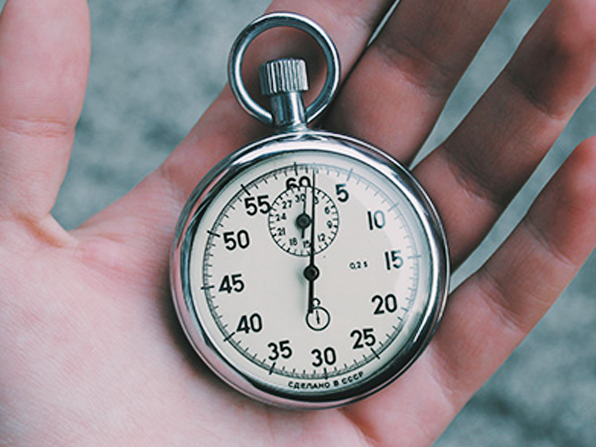
Hey there! It’s J.B McAfee here, and I’ve got a question for you:
Have you ever gone to the doctor, and they started throwing around terms like “BMI”?
Yeah, I’ve been there too. But is the BMI reliable?
Something you might not know is that this idea has been kicking around since 1832! Yep, it was first cooked up by a Belgian mathematician named Adolphe Quetelet.
Fast forward to the 1970s, and doctors and health pros started using it as a quick way to peek into a person's health status. It’s kind of like a first step to figuring out where you stand, health-wise, and whether you need to lose body fat or weight.
Here is What BMI Means
BMI stands for Body Mass Index, and for years, it’s been the go-to way for doctors to figure out if we’re underweight, normal, or overweight. It's an estimate of a person's body fat used to measure obesity.
It sounds pretty straightforward, right?
But here’s the catch—BMI measurements don't always tell the whole story about our health. It’s like judging a book by its cover; sometimes, there’s a lot more going on underneath.
Let’s dive into why BMI might not be the best gauge for everyone's body fat percentage and what else we should consider.
How BMI Can Be Calculated?
Body Mass Index (BMI) is this little number you get from a simple formula: you take your weight and divide it by your height squared. Sounds easy enough, right?
Want to figure it out without all the hassle? Here’s how you can do it:
For metric: BMI = weight (kg) / height (m²)
For imperial: BMI = (weight (lbs) / height (in²)) x 703.
But if that sounds like too much math, don’t worry! You can just use this handy BMI calculator on the CDC’s website.
How to Read BMI?
Once you’ve got your number, here’s what it means:
» Underweight: BMI less than 18.5 (high risk of poor health)
» Normal/Healthy Weight: BMI 18.5–24.9 (low risk)
» Overweight Range: BMI 25–29.9 (low to moderate risk)
» Obese Class 1: BMI 30–34.9 (high risk)
» Obese Class 2: BMI 35–39.9 (very high risk)
» Obese Class 3: BMI 40 or more (extremely high risk)
But remember, BMI isn’t a perfect measure. Think of it as a quick snapshot, not the whole picture. Yes, it's useful for flagging potential increased risk of diabetes, high blood pressure, and heart disease, but it's often wrong.
Just like a snapshot, it doesn’t capture everything.
If your BMI falls outside the “normal” range, don’t panic! It’s just a signal to have a chat with your doctor. They can help you understand what the numbers mean for you and what steps you can take to stay healthy.
Your health journey is unique, and BMI is just one piece of the puzzle.
Looking for a way to support your weight loss journey? Check out SKALD Oxydynamic Fat Scorcher. Its natural formula helps burn stored fat and reduces appetite, promoting safe and effective weight loss.
Here is Why BMI is Flawed
While BMI can give you a rough idea of your health risks, it’s got some pretty big blind spots. Let’s break down a few things it doesn’t consider:
Age and Gender
BMI is a one-size-fits-all kind of thing. It doesn’t change whether you’re male or female, young or old. But we all know that men and women, and people of different ages, have a different body composition. For example, the ideal weight for a woman who’s 5'5″ isn’t the same as for a man of the same height. Our bodies are unique, and BMI doesn’t always capture that.
Race and Ethnic Groups
Our genetics affect how we store body fat, and that's also where BMI fails. Some studies also show that African Americans often store fat under the skin, while Asians might store it around their organs, which can be more harmful. BMI doesn’t account for these differences, so it might not accurately reflect a health risk related to body fat percentage for everyone.
Muscle Mass and Fat Distribution
If you’re an athlete or just have high muscle mass, BMI might label you as overweight because muscle weighs more than fat mass. It just can't understand how much fat vs muscle one has. Plus, BMI doesn’t consider where you store your fat. For instance, carrying extra weight around your waist can be riskier for diseases like diabetes and heart issues compared to fat stored around your hips.
Enhance your weight loss efforts with BEDROCK Series STAVE.
It contains Garcinia Cambogia, which reduces appetite and blocks fat cell production. It’s an excellent addition to your fitness regimen.
Overall Health
BMI only considers weight and height, missing other critical health factors like blood pressure, cholesterol levels, or blood sugar. So, you could have a “normal” BMI but still have health issues or a “high” BMI and be in great health.
So, while BMI can provide useful information, there are many other factors to consider for a full picture of one's well-being. Based on the above, an athlete and someone who is obese may have the same BMI.
Is BMI Useful at All?
Well, the answer is yes, but with a bit of a twist. Think of BMI as a starting point, not the final word. It’s great for spotting potential future health problems and giving you a heads-up on things to watch out for.
If your BMI suggests you’re overweight, it’s like a little nudge to dig deeper into other health markers. It’s more about raising a flag for you to look into your health more comprehensively rather than giving a clear picture of your current health status.
The Bottom Line
Alright, let’s wrap this up. While BMI can help you get a basic idea about your health, it’s just one tool in the toolbox. Your age, gender, race, muscle mass, and many other factors are crucial to your overall health.
For a more complete picture, it’s essential to look beyond your BMI or the numbers on the scale. In our article Stepping Off the Scales, we explore some fantastic alternatives to measuring progress that are both accurate and motivating.
So, next time you see that body mass index, remember: Your health is a complex journey, and BMI is just one of many guides along the way.
For a comprehensive approach to health, try PRIZM. Packed with the nutrition of 42 fruits and vegetables, it’s the multivitamin that ensures you get all the essential nutrients from natural sources.






